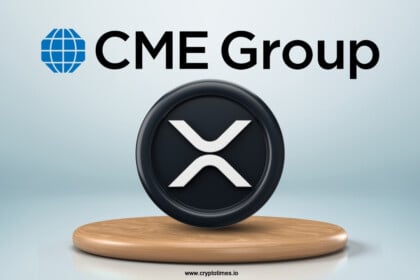The debate over central bank digital currencies (CBDCs) in the US is a complex issue at the intersection of technology, finance, and politics. Lawmakers have returned from recess with the issue at the forefront, grappling with whether a US digital dollar would pose a threat to civil liberties or if the opposition is primarily political.
A key argument against a US CBDC is that it could become a tool for government surveillance, giving authorities an unprecedented ability to monitor and restrict citizens’ financial transactions. Critics call the CBDC backlash more political theater than policy.
The debate now hinges on control and privacy, but with private alternatives booming, the question isn’t just if the U.S. needs a CBDC, it’s whether it’s already been outpaced.
The latest push to block a U.S. digital dollar centers on the Anti-CBDC Surveillance State Act, sponsored by Representative Tom Emmer, which passed the House in July. Emmer warned that a government-issued digital currency could “surveil and restrict Americans’ transactions and monitor every aspect of our daily lives” if implemented without strong privacy safeguards.
While these concerns are widely voiced, some policy experts, like Sheila Warren, CEO of the Project Liberty Institute, argue that the issue is oversimplified. They point out that a CBDC’s design is a choice. It could be built with strong privacy blockers or be fully transparent.
The Federal Reserve has also stated that it would not launch a CBDC without explicit authorization from Congress, and that any potential design could incorporate privacy safeguards.
Warren believes that the current anti-CBDC stance is largely “rhetorical and political in nature,” noting that the US position diverges significantly from other major economies like China, the European Union, and India, which are already running pilots.
“What you’re seeing now is actually quite a significant divergence with the U.S. from a lot of other major economies… The U.S., under this administration and this Congress, has taken a very anti-CBDC stance,” said Sheila Warren.
Retail vs. Wholesale CBDCs, and the Stablecoin Factor
Warren emphasized the distinction between retail CBDCs, which would be consumer-facing, and wholesale CBDCs used for interbank settlements.
“In the U.S., I’ve never thought that a retail CBDC was actually going to happen. Wholesale makes sense. Retail doesn’t,” she noted.
The rapid adoption of stablecoins may be rendering the retail CBDC debate obsolete. With the recent passage of the GENIUS and Clarity Act, stablecoins now have a clear regulatory pathway, potentially making them the de facto choice for digital dollar alternatives.
“Now that we have stablecoins… they’re going to expand and become what I’ve called the jet fuel of the digital economy,” Warren said. “That changes the calculus on whether CBDCs are even necessary.”
Missing the Bigger Threat?
As lawmakers double down on digital dollar fears, Warren pointed to a more immediate risk: data privacy breaches driven by artificial intelligence and corporate surveillance.
“Far bigger threats to my privacy are what’s happening with my data, what I’m giving willingly, what most of us are giving to AI,” she warned, citing revelations like GMC selling driver data as more urgent issues than theoretical government surveillance via CBDCs.
While the U.S. continues to stall on a definitive CBDC path, all eyes are now on how stablecoin policy evolves post-GENIUS Act—and whether Washington will shift its focus toward real-world privacy threats posed by AI, rather than speculative fears about programmable money.
Also Read: French Police Detain Seven in Crypto Kidnapping Attempt











